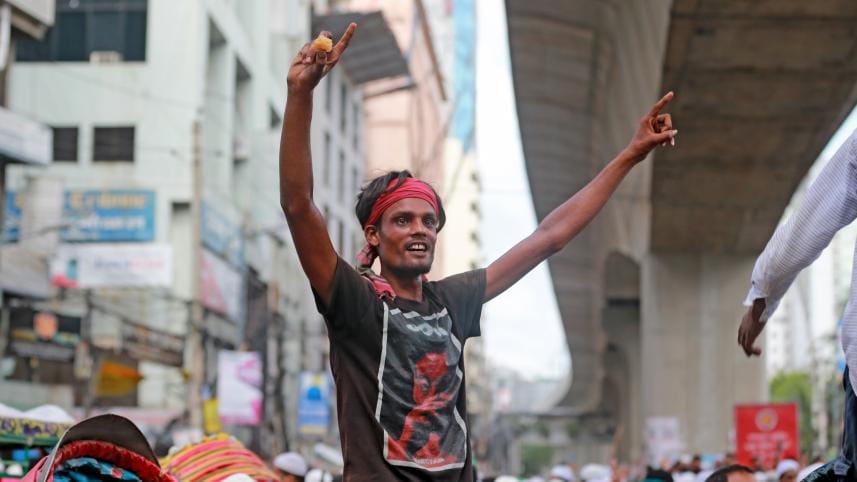Resilience of rickshaw-pullers during student protests

We are living through trying times —the student movement that called for quota reforms, the mass uprising that toppled a government and made way for a new era, and the various protests we are seeing at present. Everyone has a part to play, rickshaw-pullers included.
It is inspiring to see the role of rickshaw-pullers in and around all these protests.
At the height of it all is how they came forward to help people in times of brutality. When chaos and violence broke out in the streets, there have been instances where rickshaw-pullers took the injured to hospitals or to safety—very crucial commutes during crises!
A rickshaw-puller who plies around Green Road recollects, "For several days, no matter which neighbourhood we were in, we used to go to the main hubs of the movements. We were beside the students."
Many rickshaw-pullers did not even take fare from the protesters.

"After the merciless killings of protesters, there was no way anyone could remain silent and do nothing, especially us who are always in the streets," another rickshaw-puller from Tejgaon, commented.
Expressing solidarity was the call of the circumstances, and people from various walks of life responded to that call; rickshaw-pullers did their part with the only thing they had in hand — their vehicles.
The demonstration at Central Shaheed Minar is still fresh in our minds, where slogans for the government to step down were chanted. Rickshaw-pullers joined in as well. Hence, striking scenes of the drivers standing on their pedals and on passenger seats, chanting slogans,emerged —heartfelt, and now, engrained in our minds.
And hence rightly so, we see today a number of wall paintings or murals paying tribute to the rickshaw-pullers for taking part in the demonstrations and protests.

"When I saw the Shaheed Minar gathering, it gave me new hope — it told me that the students were not alone — that people from all walks of life wanted the same thing," a shopkeeper from Badda, shared his sentiment.
Moreover, during the anti-government uprising and the aftermath at present times, rickshaws have become a popular mode of transport for more people in Dhaka.
A Tejgaon resident, whose office is in Dhanmondi, explains, "I usually take my car to the office. But some weeks ago, when I saw many cases of arson in the news, I preferred hopping onto rickshaws instead of travelling by car. Even now, I try to avoid the main roads due to the excruciating traffic we are seeing, and use the alleyways and rickshaws instead."
Changing rickshaws and crossing the road by overbridge may do the trick! You can actually go quite far in Dhaka like this, sometimes, with a more or less similar amount of time spent compared to other vehicles.
It is not an uncommon sight to see passengers haggling a lot or even behaving rudely with rickshaw-pullers, generally speaking. Not saying that rickshaw-pullers are always right, but surely, in times of crisis, they did not turn away, and pulled through all the bumps that came along the way.



 For all latest news, follow The Daily Star's Google News channel.
For all latest news, follow The Daily Star's Google News channel.
Comments